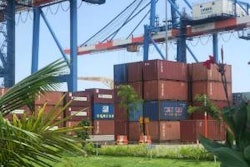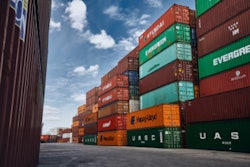
A new 2024 global report and analysis from BSI Consulting highlights the critical supply chain challenges businesses must navigate, from the high number of U.S. electronic thefts to the growing vulnerabilities in the trucking industry introduced by the digitization of systems.
“As geopolitical tensions, economic fluctuations, climate-driven disruptions, rapid regulatory shifts and of course the opportunity of AI redefine traditional models of operation, we are at a pivotal moment for global supply chains. With supply chains vulnerable to different pressures, businesses must prioritize resilience throughout the supply chain by leveraging technological innovation, risk management strategies and effective information management. By taking action and aligning with emerging regulatory frameworks, businesses can accelerate progress to mitigate risks and, while doing so, seize opportunities for growth in an increasingly complex global environment,” says Susan Taylor Martin, chief executive, BSI.
“With the new U.S. administration shifting the approach to global trade, this report highlights the multifaceted challenges that businesses must navigate in their supply chain, from trade disruption and tariffs, to rising instances of fraud and insider risks or the growing vulnerabilities introduced by the digitization of systems. These challenges are not isolated but deeply interconnected, emphasizing the need for a holistic approach to supply chain resilience, viewing all risks together through a single lens. By embracing resilience, fostering collaboration, and leveraging technological advancements, businesses can not only mitigate risks but position themselves for sustainable growth,” adds Sergio Nogueira, president, BSI Consulting.
Key takeaways:
- In 2024, food, drinks, and agricultural products continue to be the top commodities at risk of theft in the global supply chain. Thefts rose 77% globally and accounted for nearly a third (32%) of all incidents last year, against a backdrop of inflation and rising food prices in many major economies.
- Electronics accounted for 9% of all product thefts in 2024, with the United States as the top location, recording 23% of all regional product thefts last year and the only country to surpass Brazil in any product category. Notably, pharmaceutical thefts saw a 136% increase in 2024, while representing only around 6% of recorded cargo theft incidents in the United States and 2% globally. This is a mark of continued theft underreporting and its high value per incident underscores significant risks to the industry.
- Hijacking theft was the most frequent tactic globally, accounting for 21% of all incidents (+10% in 2023). However, in the United States, hijackings only accounted for 4% of all incidents, with theft of vehicle (22%), theft of container or trailer (16%), and fictitious pickup (15%) the most common methods in the region. The retail industry was particularly impacted by this type of theft as incidents rose from 9% in 2023 to 11% in 2024.
- Overall, two-fifths (41%) of all global thefts occurred in-transit, 21% from warehouses, 4% at unsecured roadside parking, and 4% from parking lots. Thefts from containers and trailers were down 7%, as thieves globally stole cargo in the form of entire vehicles (+273% and accounting for one-fifth of all cargo thefts).
- In 2024, technology continued to impact global supply chains, with businesses utilizing advancements such as AI but such tools also bringing new risks. The report found that the U.S. faces a unique challenge, with thefts generally being strategic and involving deception and fraud, rather than overt violence. The U.S. transport sector is particularly susceptible to strategic theft and organized crime.
- The research also found that economic tactics such as tariffs are increasingly being used as strategic tools to influence political outcomes in Asia and assert geopolitical objectives.


















